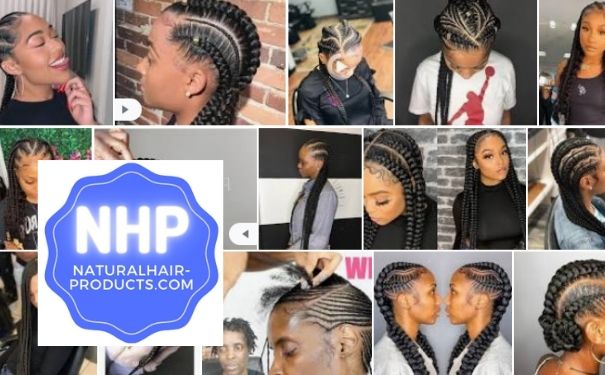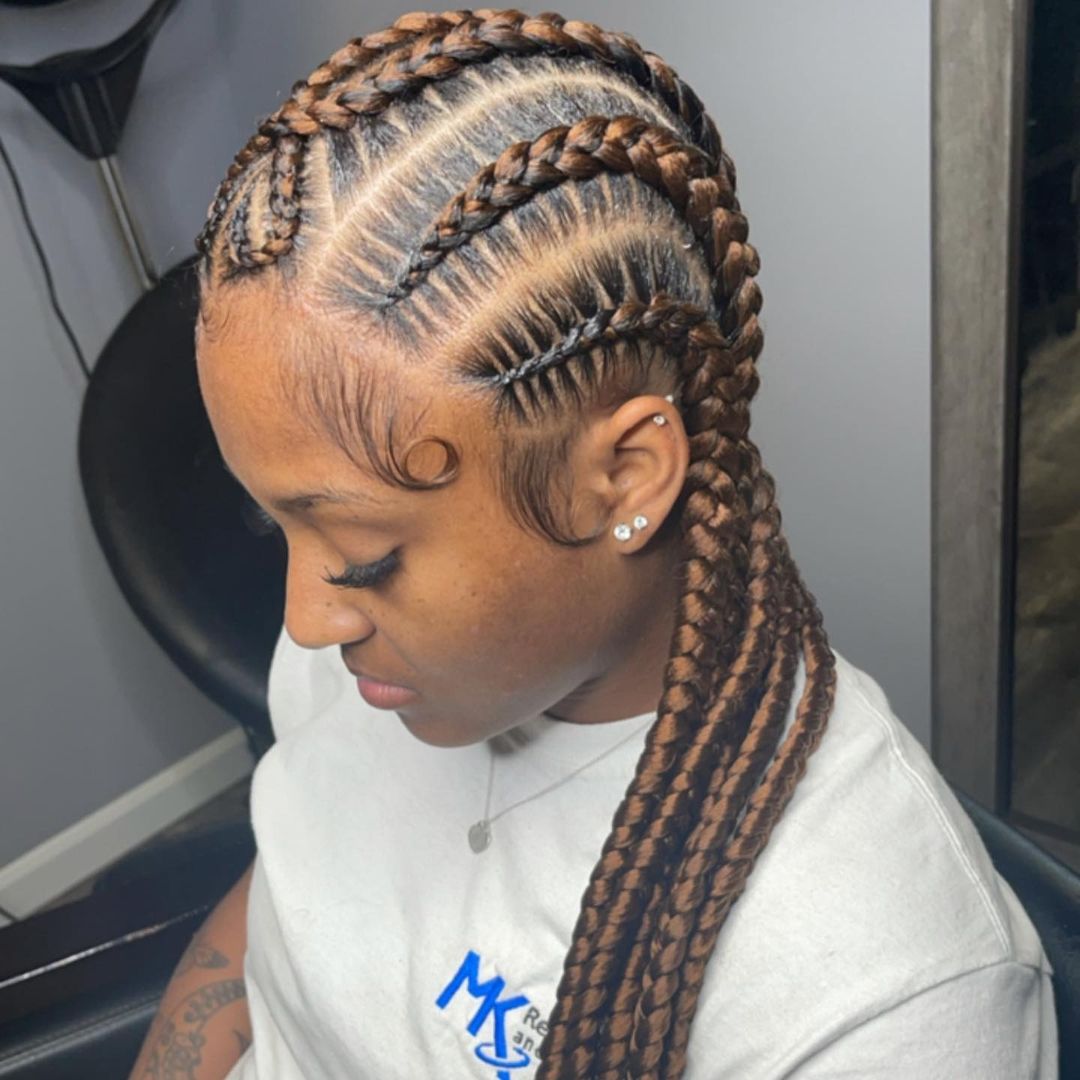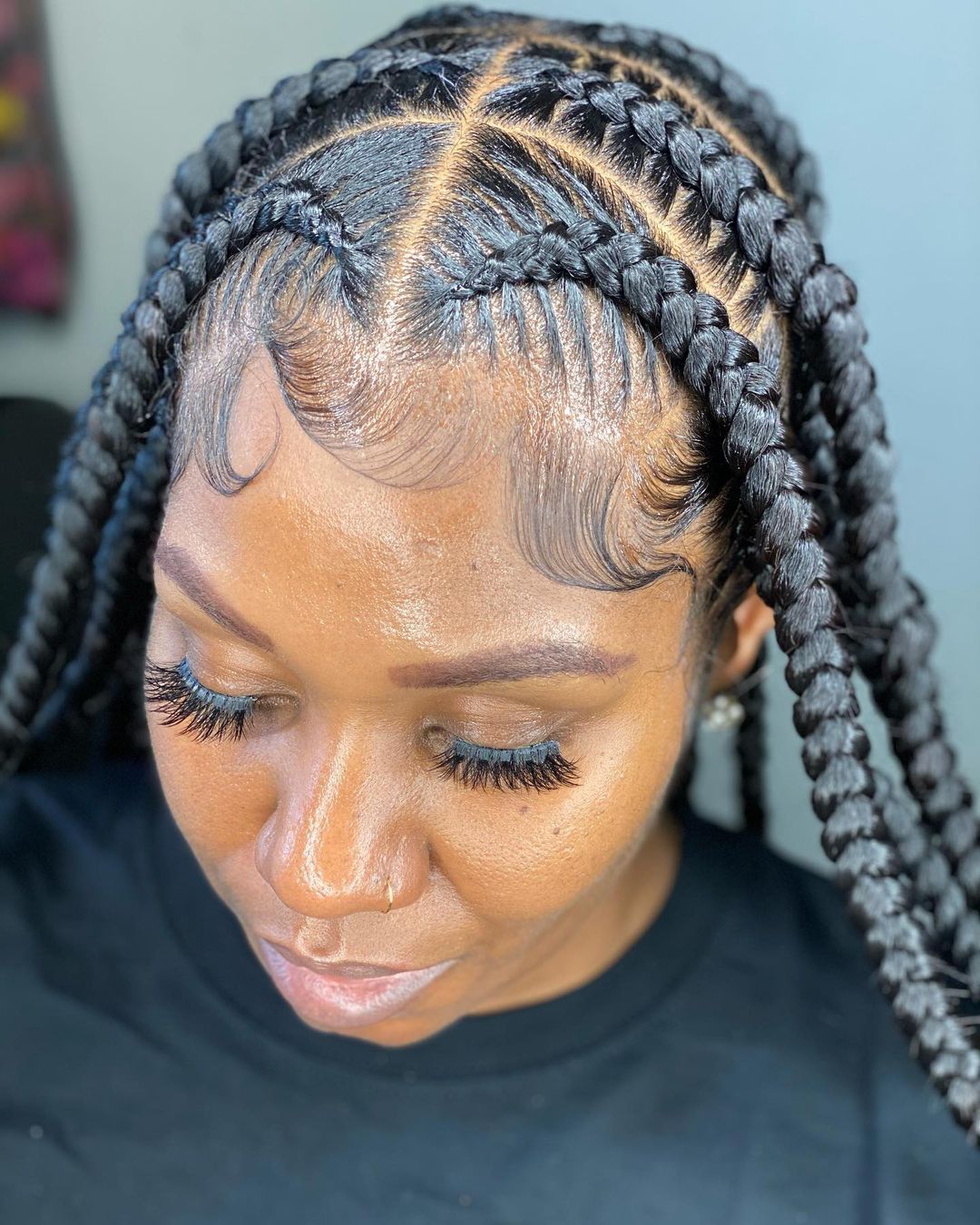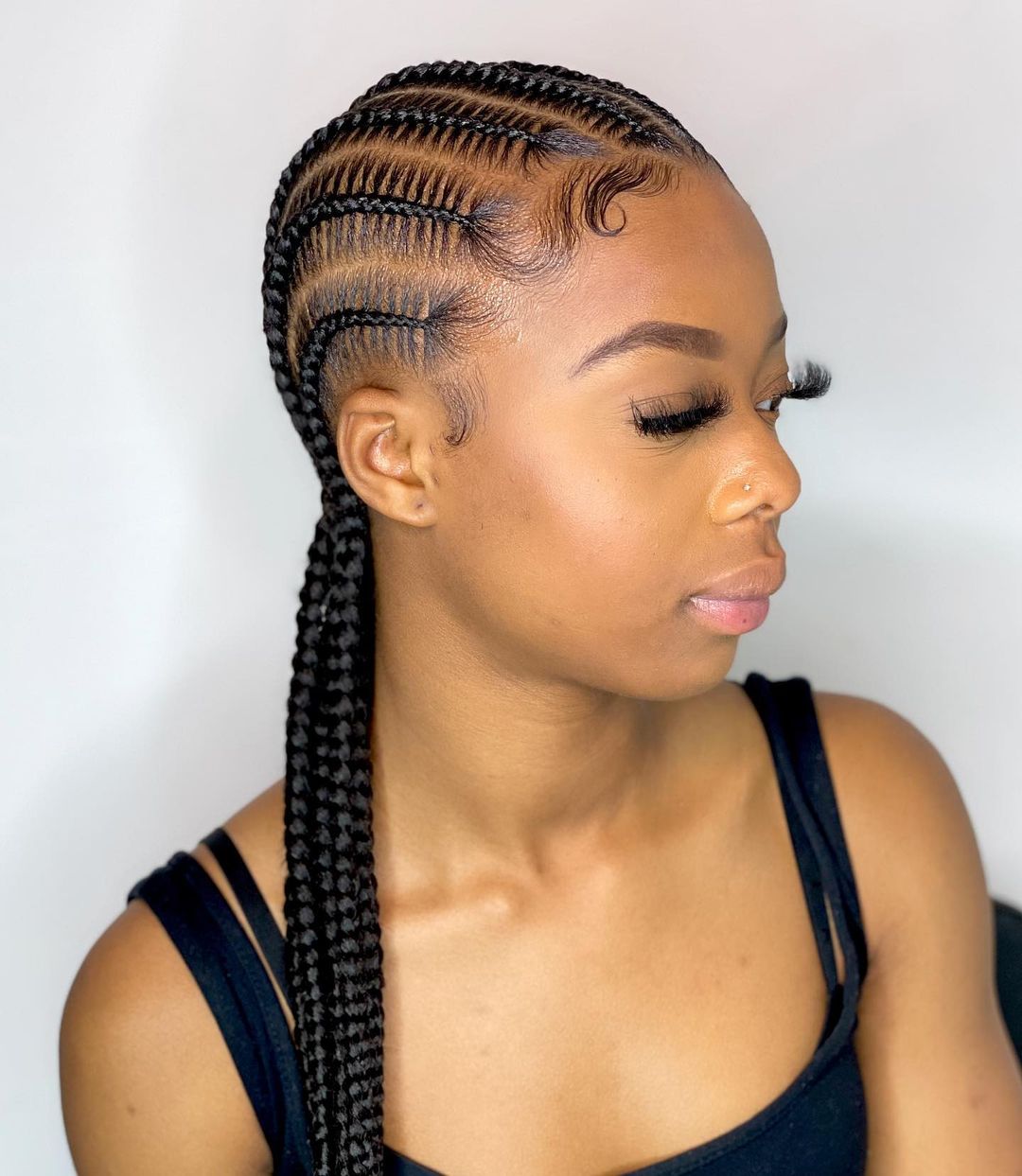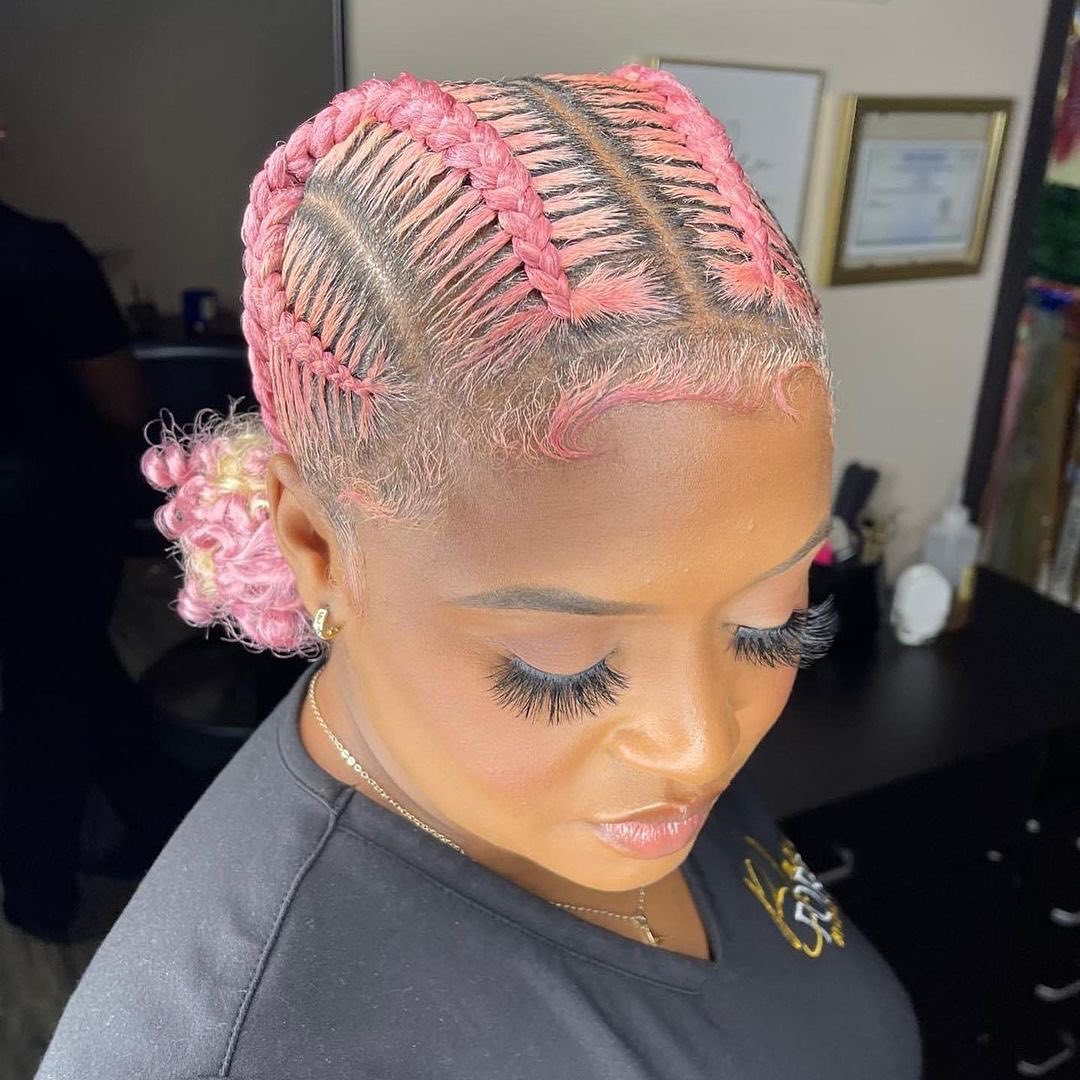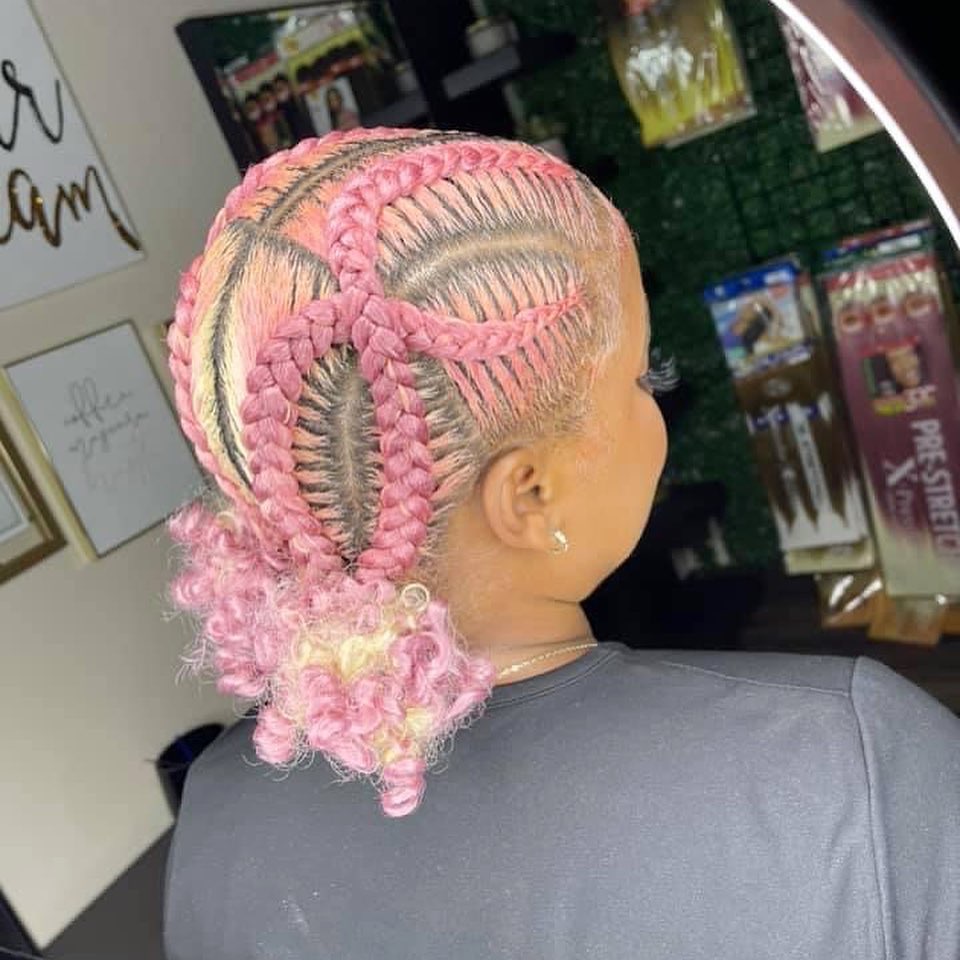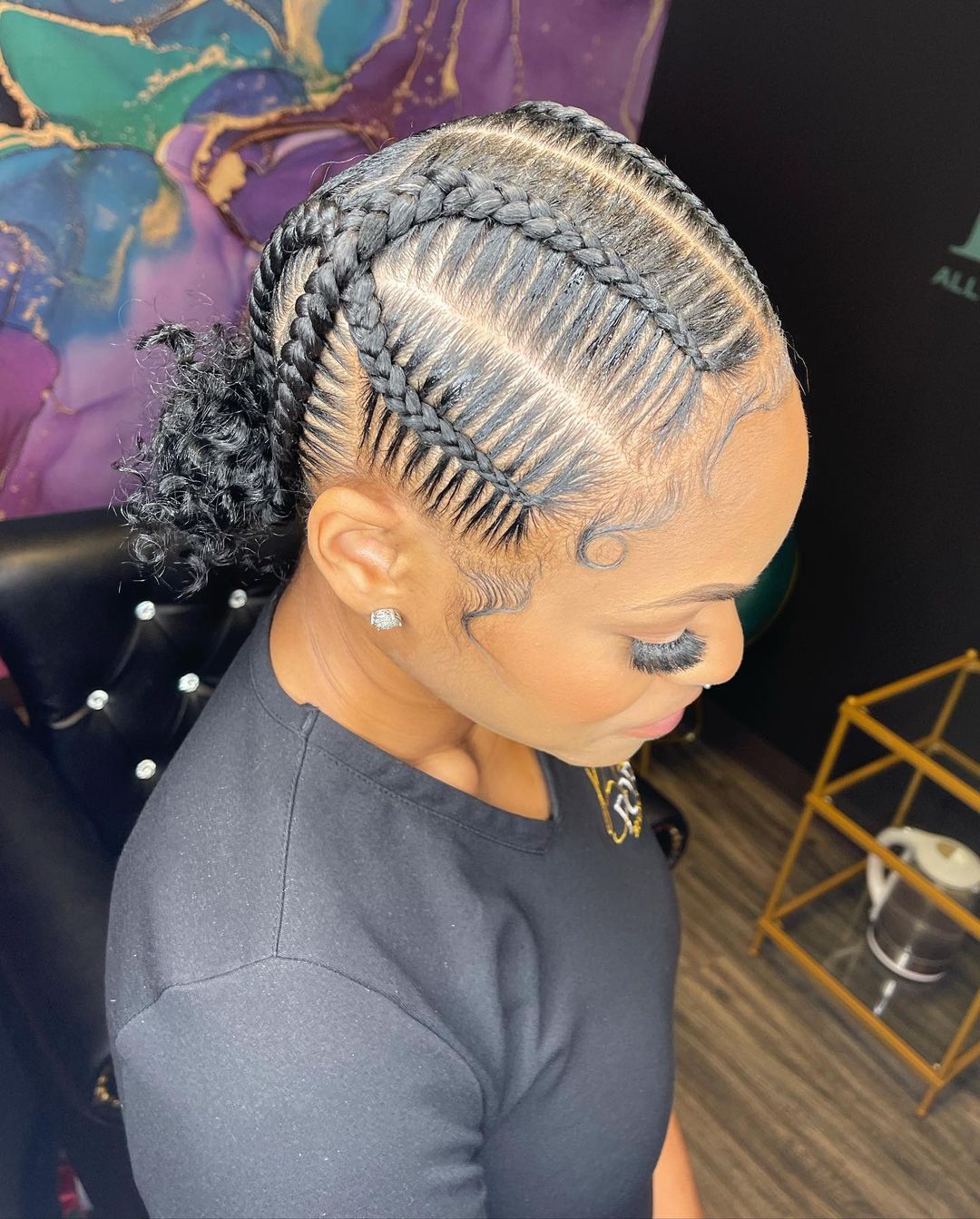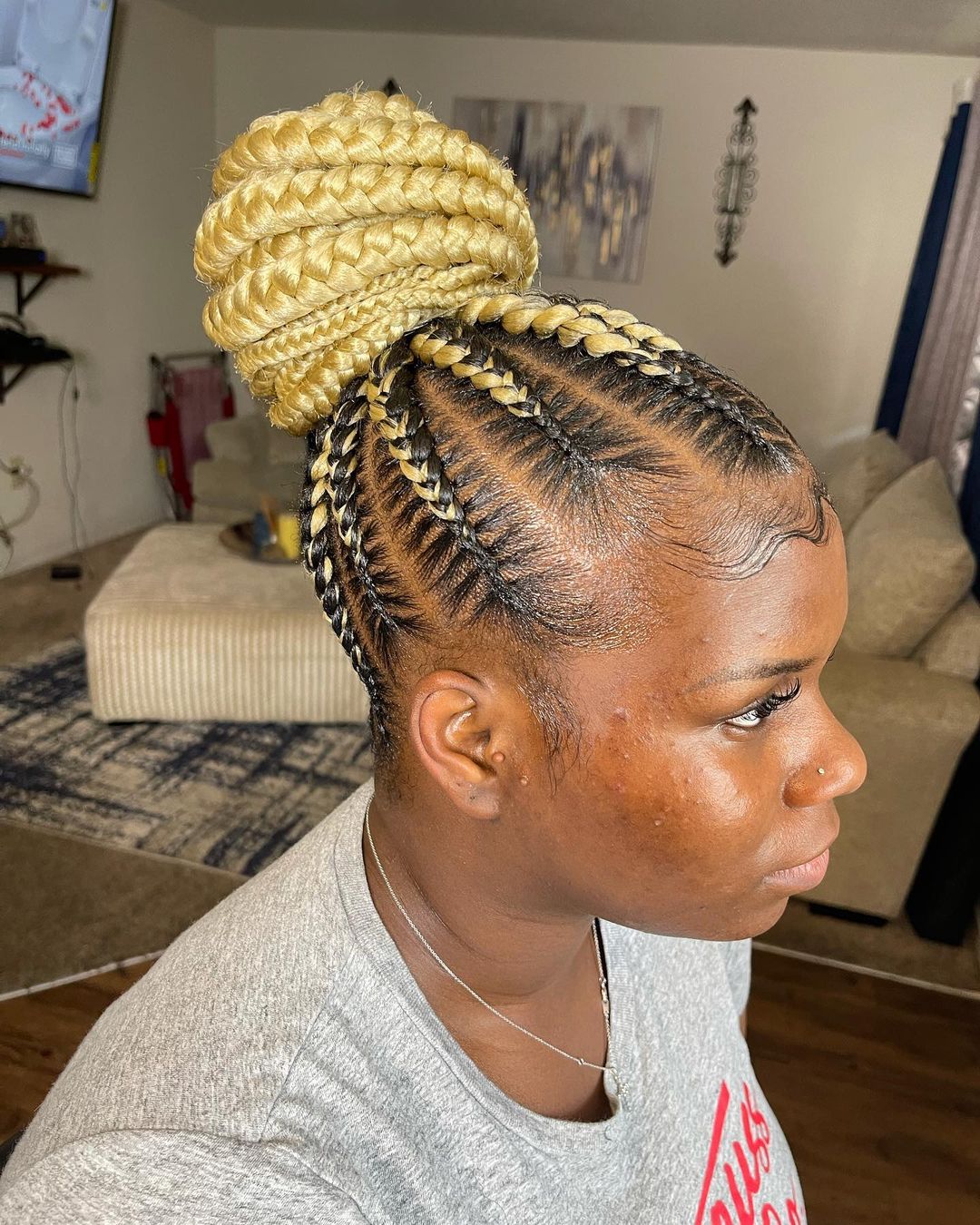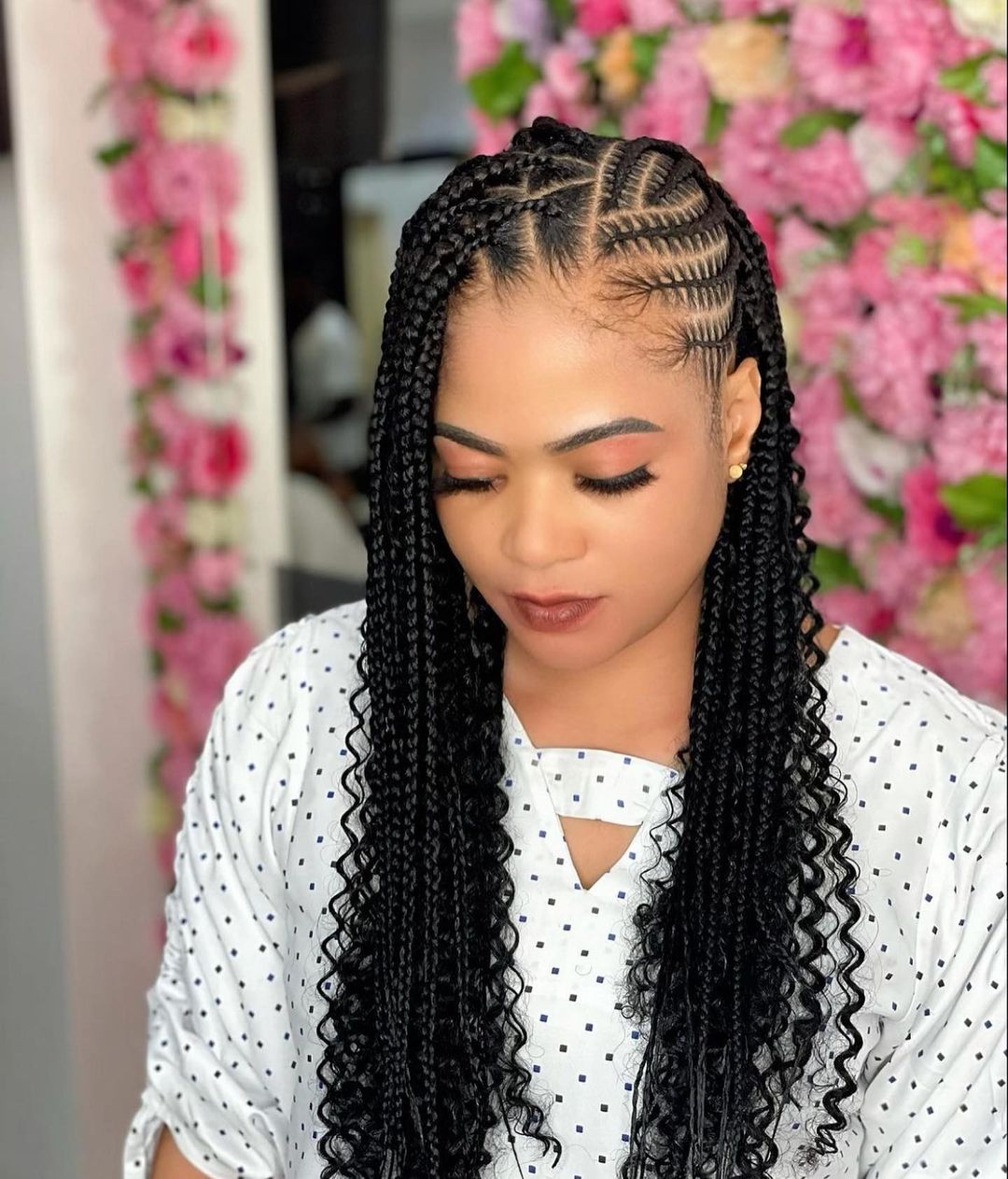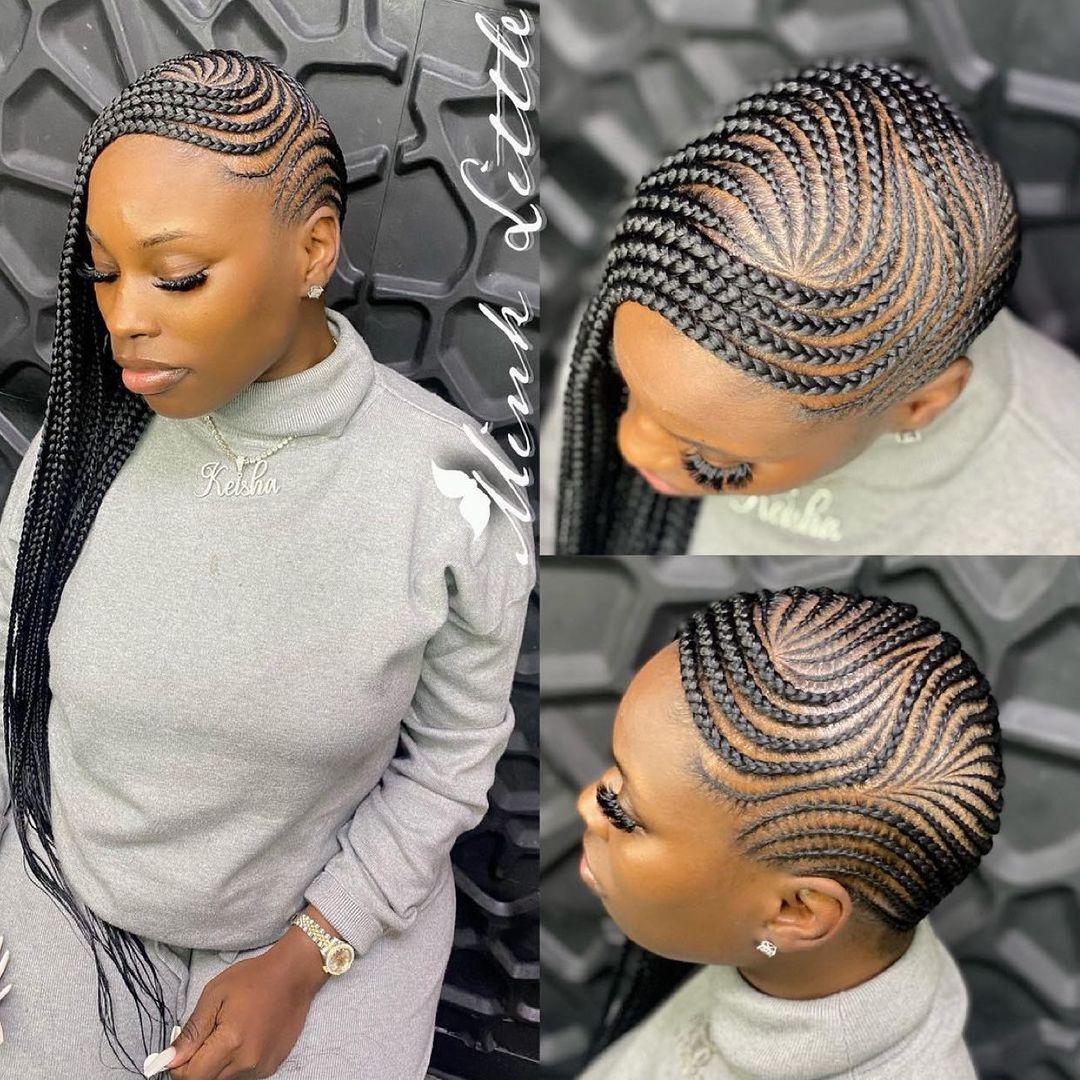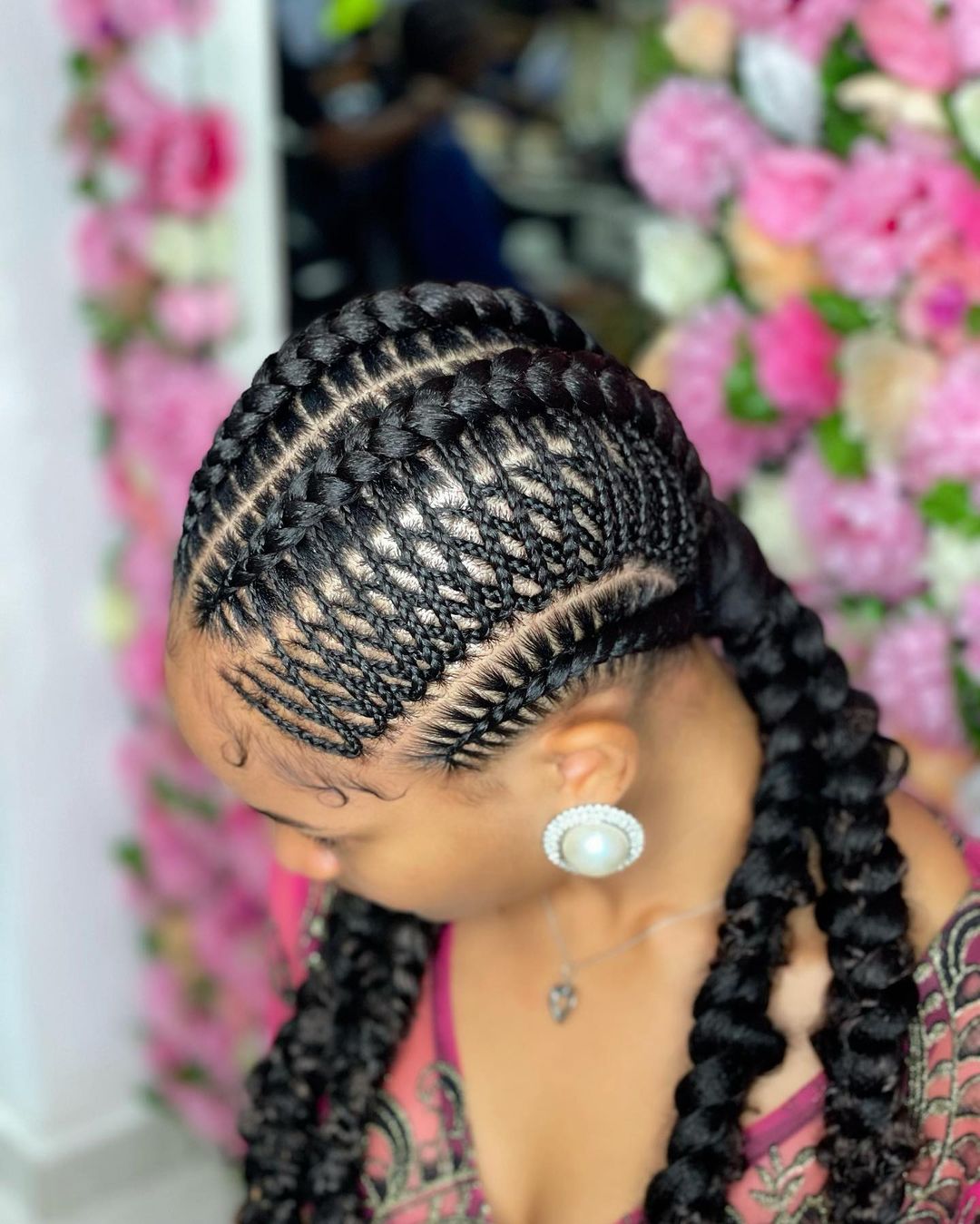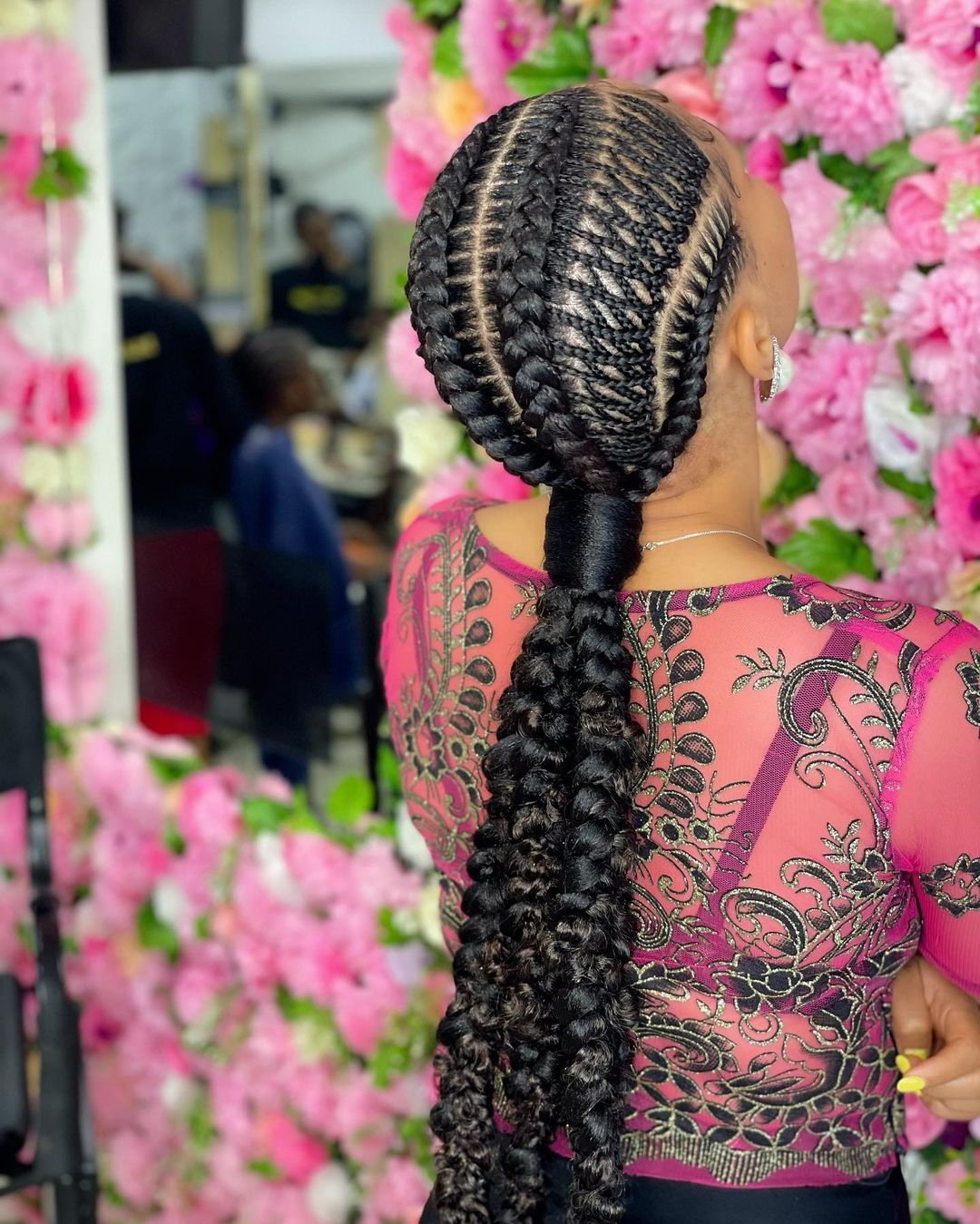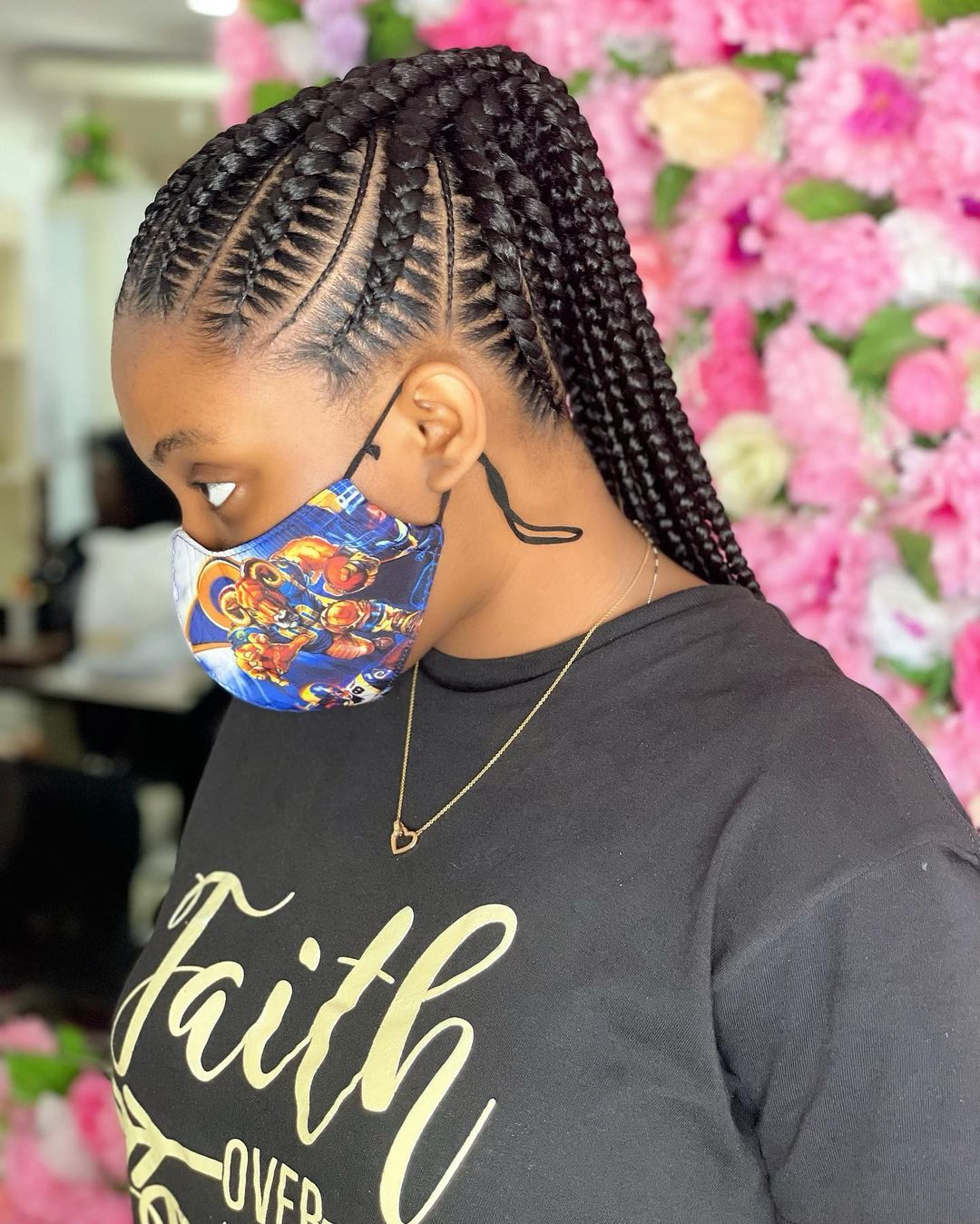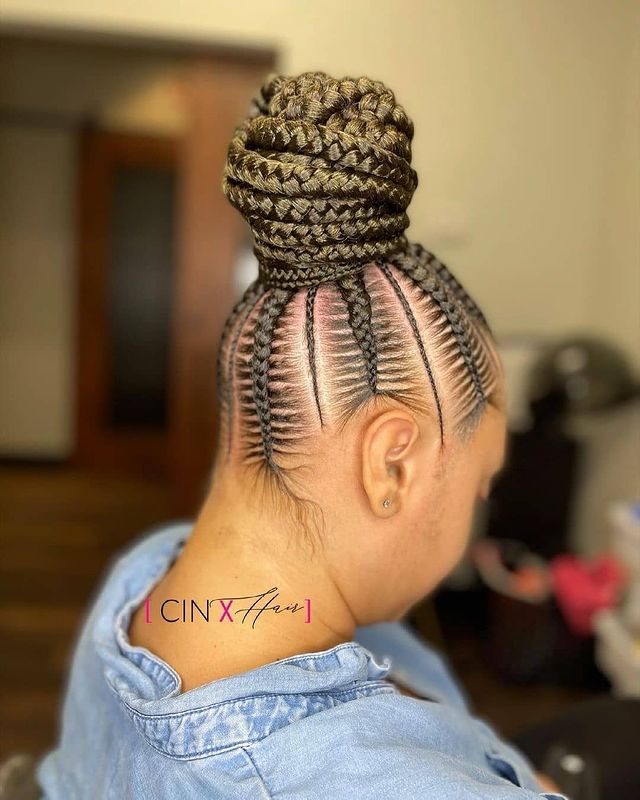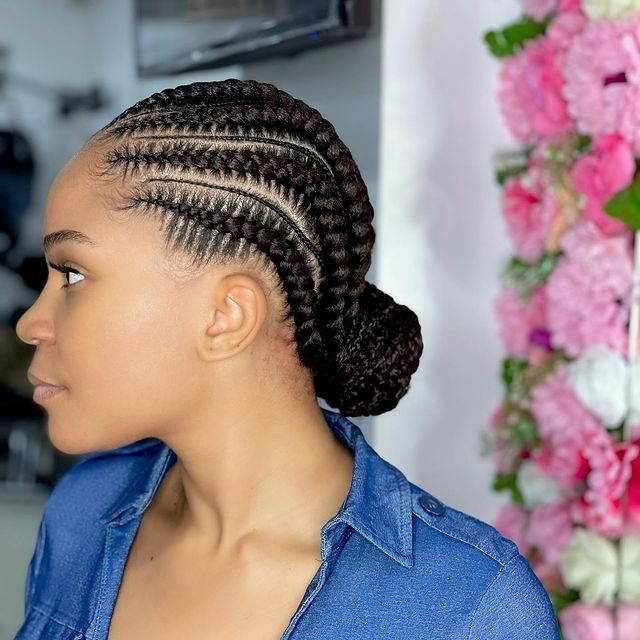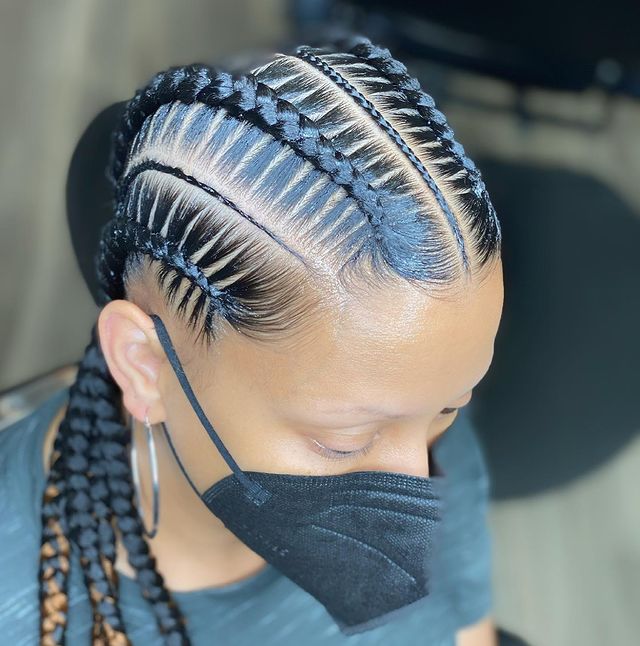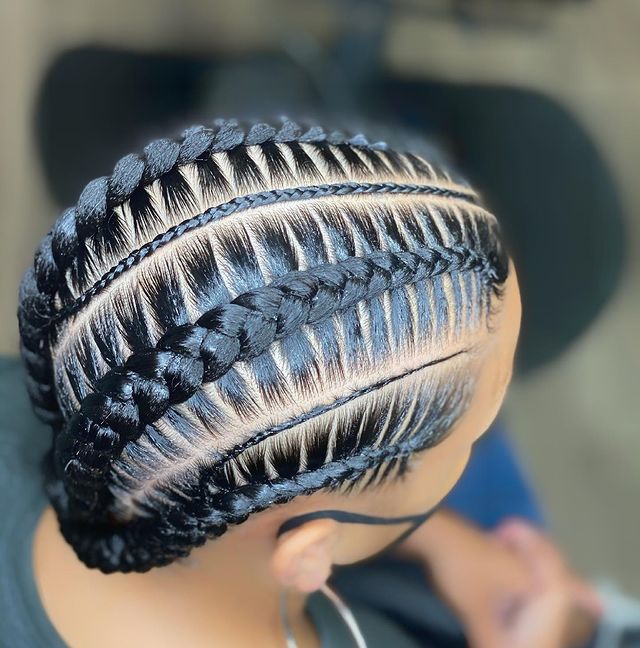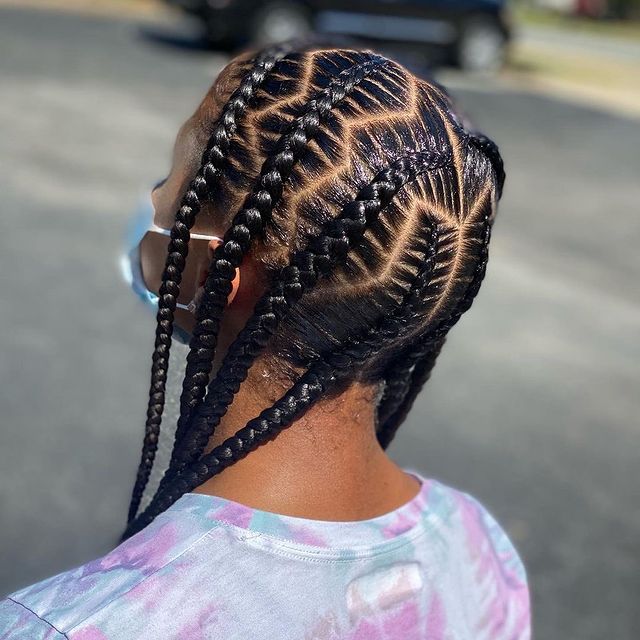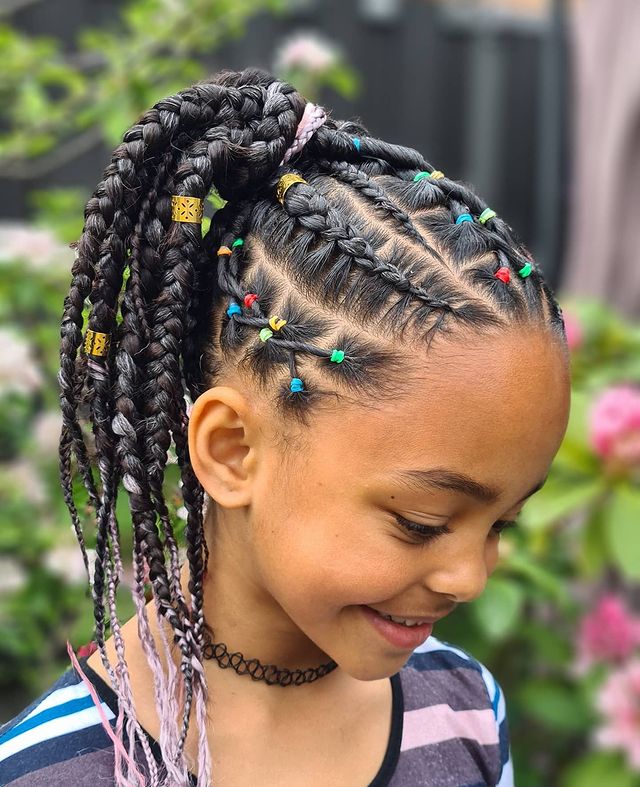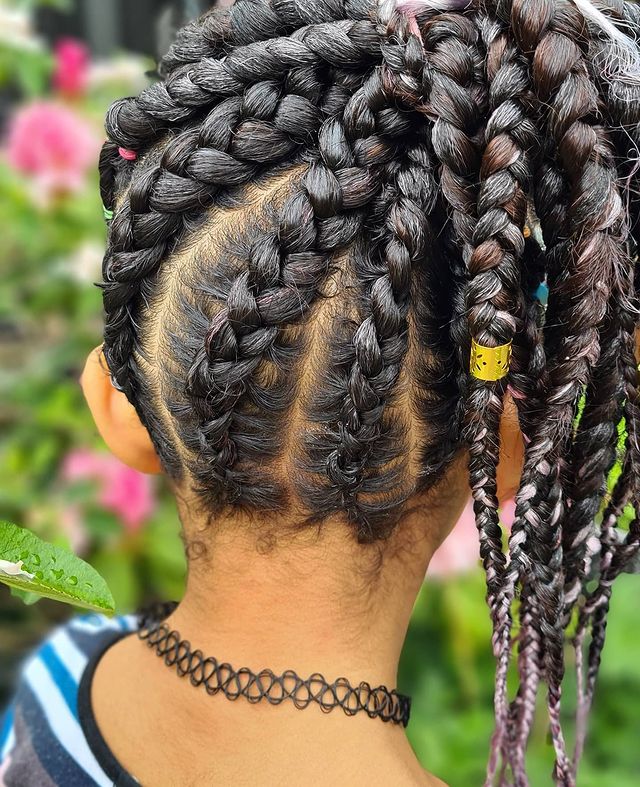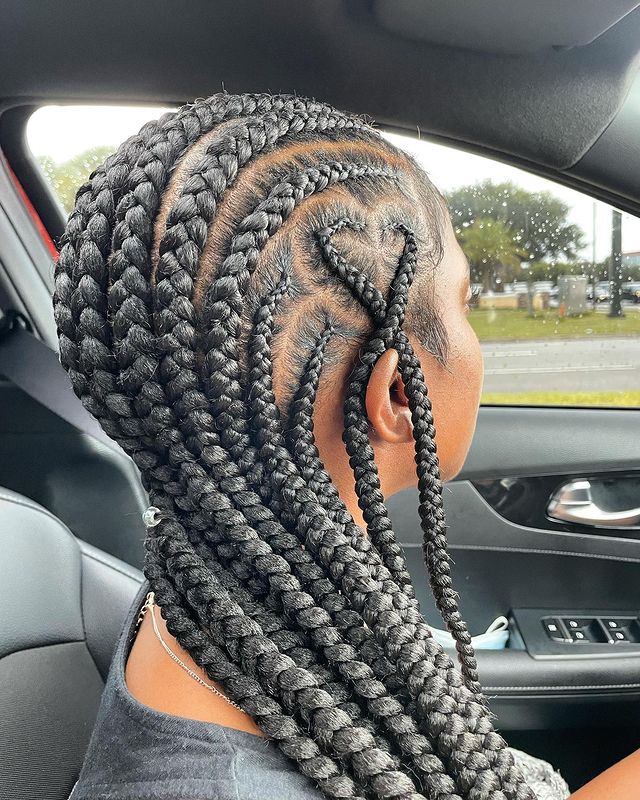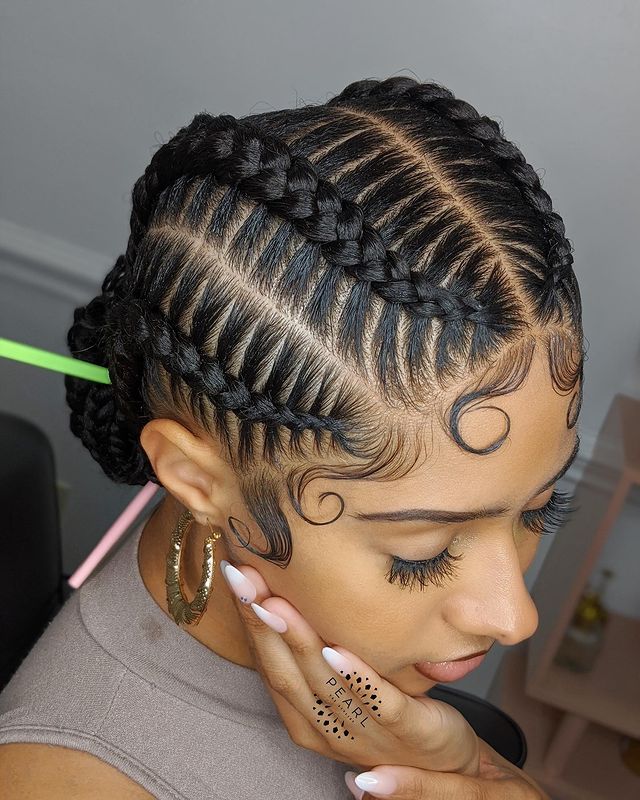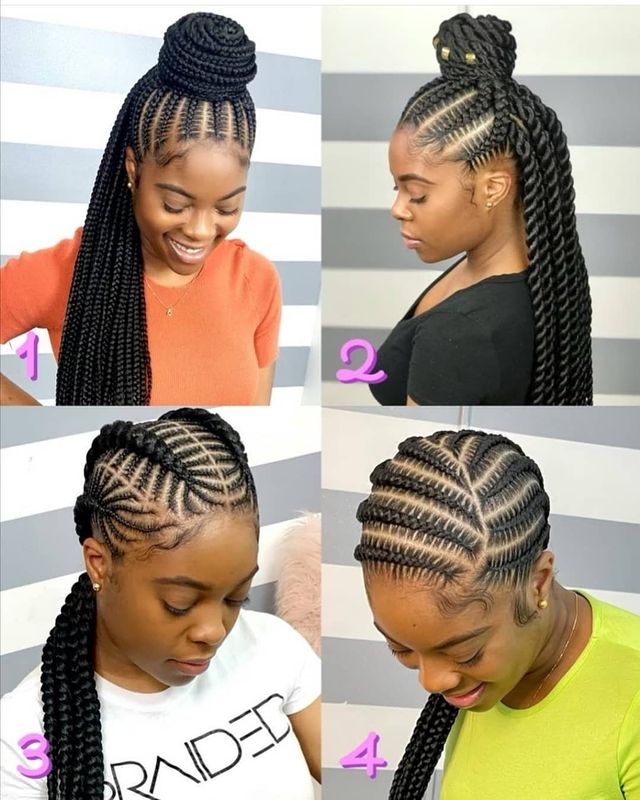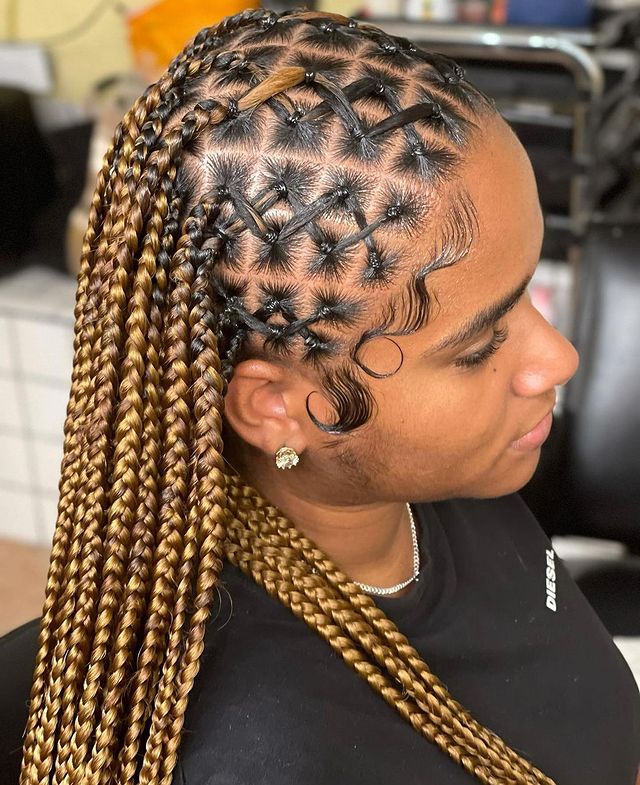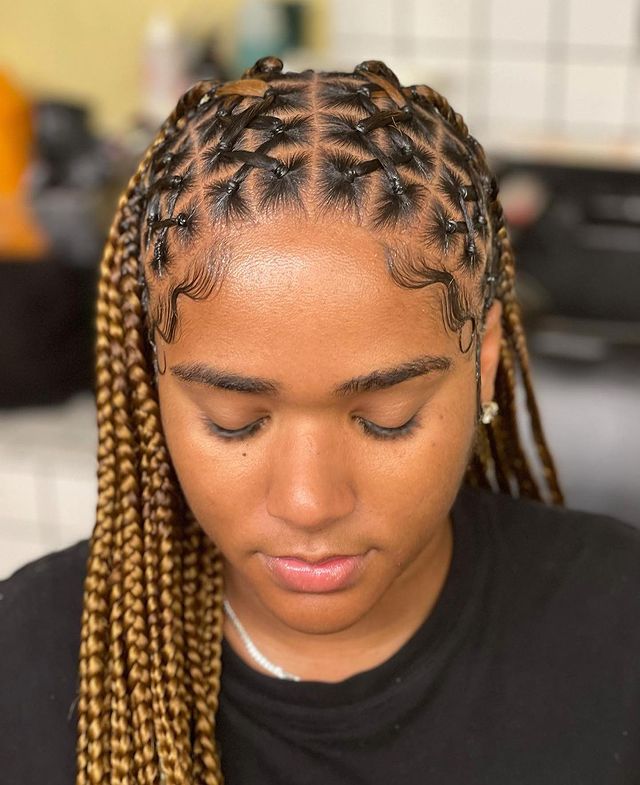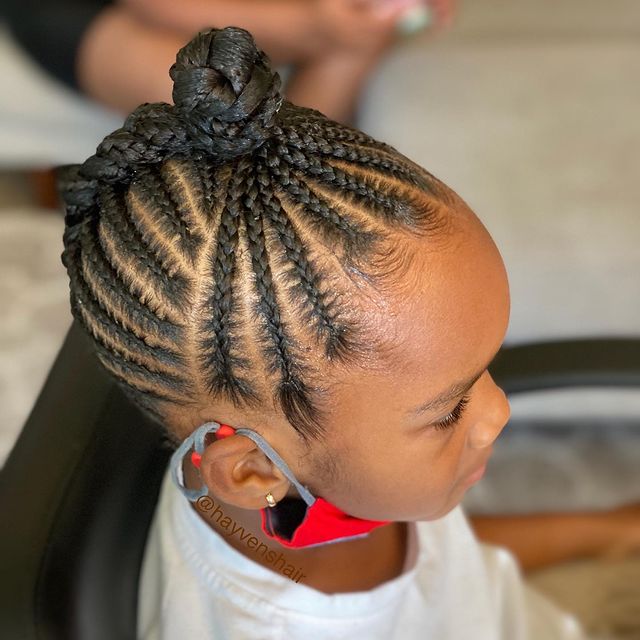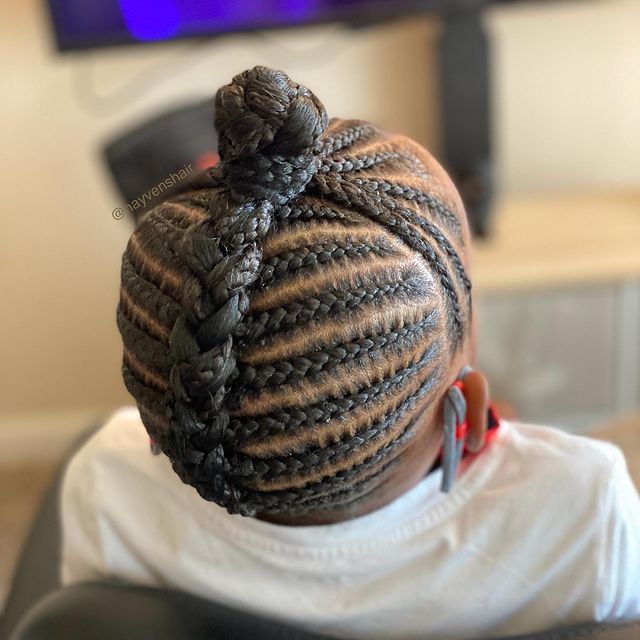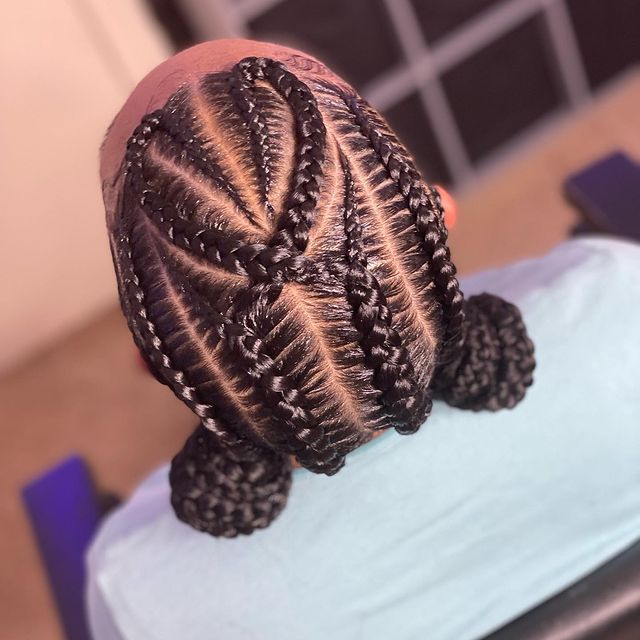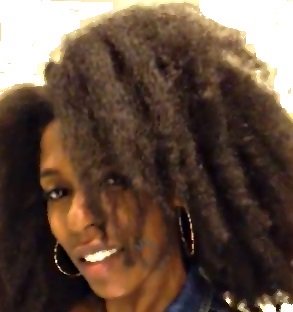31 Feed-In Braids [SEE NHP stitch braids Ideas]
- NHP
- Natural Hairstyle Ideas
- Feed-in Braids
Stitch braid style feed-in braids share a history with the traditionally popular African braiding natural Black hairstyle known as cornrows.
Cornrows were originally worn by indigenous people in Africa from as early as 3000 B.C. as an indicator of social status. The style got its name because of the row patterns resembling cornfields.
The purpose of feeding in the added extension hair in feed-in stitch braids is to add thickness, and sometimes length to the braids. When doing feed in stitch braids, a starter braid is created with the client's natural hair.
Once the natural hair braid is started, the stylist will add in the synthetic braiding hair to create long cornrow braids that still look defined and natural.
Feed-in braids are an increasingly popular cornrow style because of their length and natural appearance. You can do feed-in braids with box braids, with one or two ponytails and many other design patterns.
When creating feed-in stitch braid styles, your braider will need to use good synthetic extension hair. For this, the Sensational Pre-Stretched Synthetic Hair is a great option that will get the braiding job done.
Your braiding expert stylist will also want you to be sure that your hair is very moisturized and detangled beforehand for more braiding ease. Also, a good braiding pomade may be integral in achieving the ultimate shine and styling success.
[Sign up to get FREE NHP hair growth tutorials in your inbox!]
What Are Feed-In Braids [Stitch Braids]
Feed-in braids are essentially cornrows and often done as stitch braids. They get their name from the braid installation method of "feeding in" increasingly thick pieces of extension hair as the stitch braid cornrows are created.
A starter braid is created at the scalp with the client's natural hair as the base, and then high-quality synthetic braiding hair is fed into each braid loop to create a longer and/or thicker cornrow that still looks like it’s all yours.
Feed-in braids are becoming an increasingly popular cornrow style because of their length and natural appearance, much like crochet braids.
Think outside the box and reach for colorful braiding hair. Due to the technique, feed-in braids can blend in colors much better than traditional cornrows.
Types of Feed-In Braids [Stitch Braids]
Feed-in stitch braids come in a variety of forms, designs and colors allowing you to really get your creative juices pumping. That’s why we make these image galleries so that you can find some ideas to show your braider!
Here are some ideas that you’ll see in this image gallery:
- Two feed-in braids
- Feed-in braids ponytail
- 6 feed-in braids
- Feed-in braids with box braids
- Small feed-in braids
- Defined stitch braids
Feed-in Braids give the illusion of naturally long cornrow braids as if they are growing directly from the scalp (with no extensions added).
Because of the knots and heaviness of traditional cornrows with extensions that are installed beginning at the root, these stitch braids done feed-in style are quickly becoming the installation of choice among beautiful Black women.
The feed-in stitch braid technique is achieved by adding in braiding hair extensions to one's natural hair strand by strand beginning with a starter braid using your natural hair first.
How To Do Feed In Stitch Braids
Holding pomade is applied to every line of hair when doing feed-In braids. Braiding pomade is also applied at the scalp to the bottom of the roots of these sections. Pomade serves as the glue to the entire feed-in stitch braids style and will significantly affect the success of the style.
Feed-in stitch braids are meant to look crisp and very uniform. All strands of hair are aligned in place by the pomade.
A couple of pomade options are the famous Creme of Nature Argan Oil Perfect Edges Control Hair Gel or Shine n’ Jam.
Oftentimes, special hair-friendly hair-bands are used to loop the hair sections at the roots. The end result is elegant square ponytails. Plaiting is done the same way as in other braids.
When braiding, the stylist selects the small ponytails in the same way that a regular braider selects small sections of hair. As with Ghana braids and feed-in braids, feeding-in of choice natural or high-quality synthetic extension is done to add body to these thick cornrows.
The finer hair strands are not subjected to the same rubber band looping or extension feeding as the thicker ones. They are plaited into regular cornrows instead.
You can braid the entire head with thick lines only, or alternate between thick rubber-band stitched cornrows with thin cornrows.
The elegance of the feed-in stitch braids lies in their finished neat and unique appearance. Some feed-In braids can be fancied up and embellished with decorative trinkets and beads.
I can feel the vibes....
Can you?
This Feed-in braids style might be my favorite, her slick ponytail, the roses, her clothes cute and absolutely nothing is out of place, gotta love the Black. Girl. Magic...
She's SERIOUS.
Seriously Gorgeous.
Sometime you just have to let em' know that the crown is firmly fixed and all is good in the kingdom.
TRULY REGAL!
She knows she's fine. Livin that feed-in braids life!
And this next sista is rockingher stitch braids like a BOSS, she is GORGEOUS! Check her out...
Here's another angle of looking at her feed-in stitch braids....
If her whole look doesn't scream "QUEEN", i don't know what queen means. The melanin poppin', the fabulous feed-in stitch braids.
She is killin' it...
Little kids can rock feed-in stitch braids too, so cute on kids. Just be sure to be gentle with their edges...
How To DIY Feed-In Braids [Stitch Braids]
Yes, there are pros and cons to So please, be careful and talk to your stylist and enforce that they use caution with your hairline and scalp.
Feed-In Braids Can Be a Protective Hairstyle When Done Right:
Feed-in stitch braids can be used as a protective hairstyle when it's not too tight. Feed-in braids are also great for curly-to-kinky hair types ranging from 3A to 4C hair.
However, if you’re extremely tender-headed, you may want to reconsider using this tight style.
This style will require a lot of pulling and tugging on your hair and scalp. Also, to achieve the sharp crispness, the braids will need to be fairly tight.
They should never be too uncomfortably tight, but for someone with a sensitive scalp, the pain could be more intense.
When to wear feed-in stitch braids?
You can wear feed-in stitch braids year-round, but many people will choose feed-In braids styles during the summer.
It is great for vacations, but be careful not to get the braids too wet, or your natural hair may begin to revert and ruin the neatness of the style.
Hey, make sure to join the NHP-Hive for free hair tutorials and styles idea galleries...
